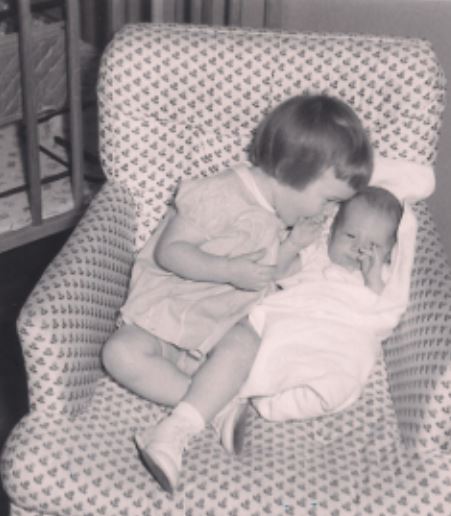Many of the posts on this blog are about my memories. My theme, after all, is “one writer’s journey through life and time.” And what is our journey, if not a collection of memories?
Last week, the Wall Street Journal published an article entitled “The Value of a Flawed Memory,” by Sue Shellenberger. The thrust of the article was that even inaccurate memories help shape who we are.
Ms. Shellenberger writes:
“A growing number of researchers say memories are not just a storehouse for facts but also a creative blend of fact and fiction that helps people tell meaningful stories about their lives, set goals and envision the future in a realistic way.
“It is commonly believed that storing a memory is like making a video, but long-term memories are never literal replays. They’re mental constructions of facts, inferences and imagined details that people patch together after the fact.”
A creative blend of fact and fiction. A mental construct patched together of facts, inferences, and imagined details. It sounds so amorphous. Yet this is who we are—this weaving of what really happened, what we think happened, and perhaps even what we wish had happened.
As a lawyer, I saw many examples where two credible witnesses swore that opposite events had occurred—the light was red, no it was green. I have experienced this in my own memories as well, where one family member recalls something one way, and another recalls it completely in reverse.

I have memories that probably are not really memories. For example, my younger brother was born when I was just seventeen months old. It’s doubtful I have any real memory of when he was born. Yet I can feel myself sitting in the chair with him when he was just days old—the shiny chintz of the fabric cover, the soft flannel of his pale blue blanket. And I hear my grandmother telling me what a good big sister I am.
Could this be real? Or did I construct it later from the picture and from the constant retellings of the story by my parents and grandparents?
Does it matter? The Shellenberger article is quite clear—it doesn’t matter. Whether our memories are accurate or inaccurate, real or imagined, psychologists say they shape us. They form our self-identity. They help us set our goals in life. They create cohesion in our lives and help us make sense of the world around us.
So whether I remember my brother’s birth or not, the story became that I was a good big sister.
I write novels (fiction) and memoir (non-fiction). But I keep my novels historically accurate and I embellish my memories in this blog to tell a story. As I wrote in one early post, the French use the same word “histoire” for both fiction and history. Similarly, “mémoire” in French can mean memory or report.
The line between fact and fiction is blurry. Sometimes the blurring just happens. Sometimes we blur it on purpose.
When have your memories turned out to be false? Does it matter?




As long as a false memory doesn’t do harm to another person, I don’t think there’s anything wrong with it. The wonderful thing about photographs is they capture that memory for us, even if we don’t remember it. What a sweet photo of you and your brother, Theresa. You’re really checking him out! 🙂
Jill, my “memory” — such as it is — is that I wanted to hug him to pieces, but I knew I had to be careful with all the grown-ups standing around telling me how sweet I was.
Theresa
I am fascinated with memory, the way it mutates, the ways in which different people recall the same event, and the role of memory in literature, memoir, and life! Interesting article, and I like the idea that it all works together to help us make sense of our lives. Just read an interesting article that I had saved about the nature of photography and the ways in which a photograph cannot exactly reproduce reality due to the fixed quality of it, and what CANNOT be included in it that changes the tone and the elements of it. Roland Barthes points out that photographs, being moments past that can never be recaptured, always point to death, the universal experience we cannot escape. So many things to talk about in response to memory and photographs!
Carla,
I hadn’t thought about photography not reproducing reality, but it’s true. Thanks for the comment.
Theresa
Great piece, Theresa. thank you.
Theresa,
I am so fascinated by the role and function of memory. The bit you share here is both striking and freeing — that memory is a mishmash of fact and fiction, that, hardcore true or not, it shapes us. Thank you for your terrific insight!
Kate, I can’t take credit for the insight, which came from the WSJ article. But, like you, the concept fascinated me–we are shaped by both the fact and the fiction of our memory.
Thanks for reading,
Theresa